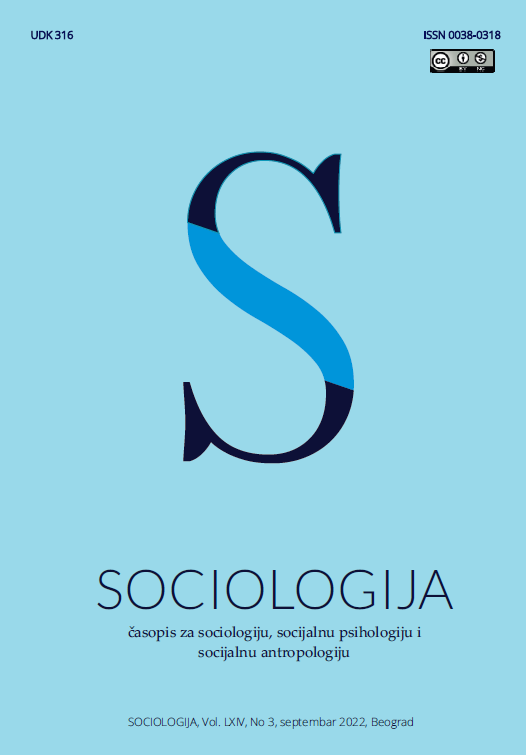Homoseksualnost i Srpska pravoslavna crkva:
transformacije odnosa u poslednjih 20 godina
Homosexuality And The Serbian Orthodox Church: Transformations Of Relations In The Last 20 Years
Author(s): Miloš JovanovićSubject(s): Gender Studies, Sociology
Published by: Sociološko naučno društvo Srbije
Keywords: The Serbian Orthodox Church; homosexuality; Serbia; dominant attitudes
Summary/Abstract: The paper deals with the change of attitudes of the Serbian Orthodox Church towards homosexuality in the period from 2001 to 2021. Since, according to research, the Church ranks high (sometimes the highest) on the scale of trust that Serbian citizens have in institutions, it is reasonable to assume that it has a significant impact on shaping public opinion. The dominant attitude of the church officials about same-sex attraction has varied over time. Before the first attempt at the Pride Parade in Belgrade in 2001, there was absolute silence in the Church on the topic of same-sex affection, that is, a conspicuous disregard of it. After that, the„politics of silence” gradually gave way to a strong moralistic condemnation, which reached its peak in 2010, when the first successful Pride was held in the Serbian capital. It should be mentioned that, in addition to the condemnation, there were ambivalent attitudes of the church officials and prominent believers towards homosexuality / homosexuals. Ambivalence was expressed through the maxim:„we hate the sin, we love the sinners.” The views of the Church were particularly visible during the public debate on the adoption of the Law on Prohibition of Discrimination in 2009. The discourse of religious condemnation of homosexuality is usually imbued with pronounced anti-Westernism and disparagement of liberal values and practices, traditionally marked, i.e. branded, as „European” and „those that are not in accordance with the tradition of the Serbian people.” The position of the Serbian Orthodox Church, in the most general terms, follows the general dynamics of political changes in Serbia. In the last few years, the political elite in Serbia has been instrumentalizing the rights and freedoms of sexual and gender minorities in order to gain international support (above all, from EU countries) for remaining in power through „tactical Europeanization.” The state administration proclaims its alleged adherence to the principles of the European Union, without any genuine interest in improving the social position of non-heterosexuals and gender non-conformists. In the context of a „captured society” (where social actors are caught in a network of corrupt exchanges in order to reproduce the rule of political oligarchies and fabricate the legitimacy of their rule), the Church has agreed to demonstrate a more moderate stance towards homosexuality, as a symbolically and materially more profitable one.
Journal: Sociologija
- Issue Year: 64/2022
- Issue No: 3
- Page Range: 428-453
- Page Count: 26
- Language: Serbian

